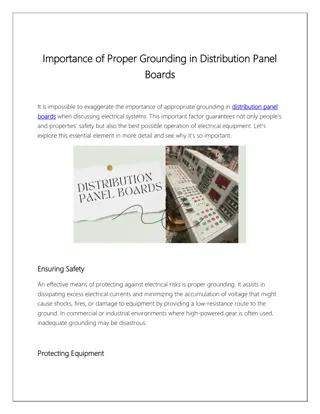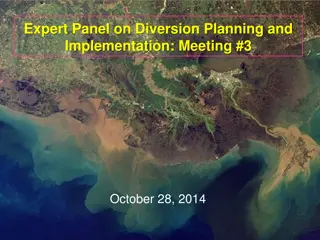
Effective Data Management Strategies for Science Research Success
Explore the fundamental principles and specific axes for a comprehensive Data Management Plan in science research. Learn about planning, designing, creation, collection, analysis, collaboration, evaluation, archival, dissemination, sharing, long-term access, and reuse of research data.
Download Presentation

Please find below an Image/Link to download the presentation.
The content on the website is provided AS IS for your information and personal use only. It may not be sold, licensed, or shared on other websites without obtaining consent from the author. If you encounter any issues during the download, it is possible that the publisher has removed the file from their server.
You are allowed to download the files provided on this website for personal or commercial use, subject to the condition that they are used lawfully. All files are the property of their respective owners.
The content on the website is provided AS IS for your information and personal use only. It may not be sold, licensed, or shared on other websites without obtaining consent from the author.
E N D
Presentation Transcript
RESEARCH DATA MANAGEMENT Daniel Vrinceanu Department of Physics Texas Southern University, Houston
SCIENCE RESEARCH REQUIRES RECORDING DATA All data is organized curated and preserved and may or may not need to be shared. Data is recorded with various technologies and on different media: supercomputer and lab notebook. Different stages in research cycle need different components of Data Managements: Planning and Designing Creation and Collection Analysis and Collaboration Evaluation and Archival Dissemination and Sharing Long term access and Reuse
Sketch the fundamental principles and specific axes for the Data Management Plan PLANNING AND DESIGNING Onboarding checklist, recruiting and training, surveying Documentation, Metadata File formats Data Use agreements for stakeholders
CREATION AND COLLECTION File and directory naming convention for research group Version control Readme files Instrument protocols Quality control Data integrity
ANALYSIS AND COLLABORATION ELECTRONIC AND MANUAL LABORATORY NOTEBOOKS ANALYSIS READY DATASETS IMAGE MANAGEMENT COLLABORATION TOOLS AND SOFTWARE, JUPYTERHUB GROUP MEETING NOTES AND MINUTES
EVALUATION AND ARCHIVAL DATA DATA INTELLECTUAL PROPERTY ARCHIVE AND RECORDS MANAGEMENT DATA SAFETY AND SECURITY DESTRUCTION RETENTION POLICY
DISSEMINATION AND SHARING Data repositories, internal or external, specialized + generic Data sharing formats, selection, packaging Scholarly products: poster and oral presentations Pre-prints, manuscripts, articles in professional journals
LONG TERM ACCESS AND REUSE Active and intermediate term arrangements Reproducibility of research Offboarding checklist Open access for community Long term archival






















